A Personal Reminiscence by Daryl Sharp
the article republished thanks to courtesy of Daryl Sharp
original source: Inner City Books
Marie-Louise von Franz saved my life. It’s that simple, and that complicated.
I didn’t meet her in person until 1976, but already in 1970 her landmark book published by Spring Publications, The Problem of the Puer Aeternus (a Jungian interpretation of The Little Prince by Antoine St. Exupery), had opened my eyes to my personal psychology. Well, that’s not entirely true; better say she prepared me for what was coming, which is to say, I could appreciate intellectually, with my thinking function, her analysis of the mother-bound man, but I did not truly see its relevance to me-from a feeling standpoint, that is-until I was on my knees three years later. Then her words pierced my heart. Tough to take, but her cogent comments on men who sounded suspiciously like me, devastating as they were to my image of myself, offered an implicit alternative to killing myself.
Needless to say, I took the alternative: I went into analysis. I was in England at the time and my analyst was Dr. Anthony Stevens, a great admirer of von Franz. He helped me to my feet and on his recommendation I was accepted for training at the C.G. Jung Institute of Zurich.
I limped into Zurich in the fall of 1974, having abandoned my wife and three young children in favor of my own potential renewal. Marie-Louise von Franz was my beacon, but alas, she was already fully booked. I shopped around and found another analyst, Dr. Richard Pope, who was more than adequate for the likes of me, but that is another story.
As it happened, I then fell in with a shadow companion. Fraser Boa, a charismatic fellow larger than life, had also been accepted as a trainee and was looking for someone to share a house. Fraser had been a teacher for many years before he landed a job as assistant producer on the film Murder on the Orient Express. He was also Canadian, from London, Ontario, and he too had run out of steam, reached the end of his tether and so on. Our dismal state was echoed by others in training, which is to say we were all there because we had run afoul of our own psychology.
Fraser and I rented a house in the nearby village of Egg. In German this place-name is pronounced Eck, but of course eggs are ubiquitous symbols of new life, which heartened us both. His sister, Marion Woodman, soon joined us. She was a frumpy housewife then, just as neurotic as the rest of us.
Fraser became a close friend of mine, our relationship enhanced by the fact that Marie-Louise von Franz was his analyst. Somehow he had wangled it. And thank goodness, because every time he came back from a session with her we chewed over, for hours, what she had said. We found separate living spaces after six months, but the analytic sharing went on. I was continually in awe of Fraser’s account of von Franz’s understanding of his dreams. He would tell her a dream and stammer a few associations. She would come back with a full-blown interpretation of what the unconscious was saying to compensate his conscious attitude.
Well, my own analyst took quite a different approach toward me and my material, bless him, but what I heard from Fraser was at least complementary, and at best an analysis with von Franz, albeit vicarious. Fraser died in 1992 without ever knowing how teeth-grinding envious I was when he began to refer to Dr. von Franz as „Marlus,” the name by which she was known to intimates.
Marie-Louise von Franz was a frequent lecturer at the Jung Institute on dreams, fairy tales and the symbolic importance of alchemy. At the very first lecture of hers I attended, I was fascinated almost as much by her dirty fingernails as by what she said. She was a handsome woman of 58, in the prime of life. She had a brilliant smile and was appropriately dressed. So what about those fingernails? I did not realize then that my dominant sensation function obliged me to focus on such outer details. Not to mention the fact that my attitude at that time was sadly blinkered, limited to persona perceptions.
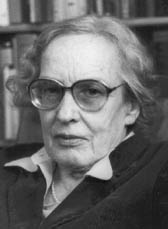
M.-L. von Franz
Fraser, whose persona was quite as loose as that of von Franz, enlightened me. „Marlus loves gardening,” he said. „She was probably planting bulbs or weeding before she came, or maybe she just forgot to wash. Whatever. And so what? What you see isn’t the sum total of what you get.” Oh yeah? This was news to me, but typical of what I learned from Fraser Boa, an intuitive for whom time was flexible and boiling an egg was a hero’s journey.
During my four years in Zurich, I read everything von Franz had published. Her fairy tale interpretations took my breath away. Some of her lectures had been transcribed and were available from the Institute in mimeographed form. Several were published by James Hillman’s publishing house, Spring, in the mid-seventies: The Interpretation of Fairy Tales, Feminine in Fairy Tales
, Shadow and Evil in Fairy Tales, Individuation in Fairy Tales
. I found these and others particularly valuable in amplifying the meaning of images that turned up nightly in my dreams. I devoured them and lamented the fact that they were not indexed. But not for long.
Before I went to pieces I had been a freelance editor, and so I set about creating indexes for these books, as well as for my first love, The Problem of the Puer Aeternus. I photocopied my painstaking work and sold it to other students and past graduates. Eventually Spring bought the rights to these indexes and incorporated them in subsequent printings. The benefit to me was twofold: I absorbed von Franz’s attitude toward the unconscious and I was able to pay my tuition fees.
I had analytic sessions with Dr. von Franz on two occasions, about a year apart. She lived and practiced in Kusnacht, a Zurich suburb, in an unpretentious little house on the side of a hill overlooking the Lake of Zurich. 15 Lindenbergstrasse. Her house-mate was Barbara Hannah, an aging analyst, cantankerous as all get out but sharp as a tack. (Her own biographical portrait, Jung: His Life And Work, A Biographical Memoir, published in 1976, is still among the best.) I had heard the story that they lived together because Jung had decreed it on account of Miss Hannah’s failing health. In spite of Miss Hannah’s reputation for being difficult, I saw only affection between the two.
My notes from those years don’t indicate why von Franz agreed to see me, though I suspect Fraser had a hand in it. I do remember the setting in her consulting room: simply furnished with a table and straight-backed chair, two comfortable armchairs face-to-face, and overflowing bookshelves. It was the same room she finally died in, which I was invited to view twenty years later, just before the Memorial Service. The only difference I saw was the addition of a single bed and flowers everywhere, giving it the appearance of a shrine. I also recall that she never billed me for those two hours.
In 1976, when it came time for my Propadeuticum, the nerve-wracking mid-term exams at the Zurich Institute, I chose von Franz to test me on the psychological interpretation of fairy tales. I hadn’t met her personally yet, though I dare say she knew something of me from Fraser’s dreams. It was an oral exam. I was given twenty minutes alone to read the synopsis of a fairy tale. Then I was questioned by my idol, the Expert. In spite of having immersed myself in her work, I didn’t do well. I sweated, I coughed, I stuttered; in short, I froze, completely complexed. I did not know the answer to the simplest of questions.
After twenty minutes, Dr. von Franz sat back and eyed me. „You are truly a mess,” she said. „You are either a stupid ninny and shouldn’t be here at all, or you have talents as yet undiscovered.” On a grading from 1 (tops) to 5 (abysmal), a 3 was a bare pass, which is what she gave me. I crept out of that room feeling very grateful indeed, for it meant I could then move on to the Candidate stage and start taking clients of my own.
Two years later she examined me again. In the interim I had spent less time frolicking on the Niederdorf, Zurich’s night-life district, and more on why I was where I was. I had re-read von Franz’s books and I was intimate with Jung’s Collected Works. I was as primed for my Diploma exam on fairy tales as any horse is for the Kentucky Derby.
I was given a tale from the Grimm collection, „The Crystal Ball,” and six hours in which to write a psychological interpretation. I had not read it before, but the motifs were familiar: crystal, eagle, whale, castle, forest, giants, magical hat, wishing, sword, etc., and, wouldn’t you know it, an egg within which was the treasure „hard to attain.” I wrote my head off and finished in time. The independent examiner refused a mark, saying, „He must have cheated.” Von Franz gave me a 1 and penciled a terse note: „He knows his stuff.”
In 1978, at the age of 42, I returned to Toronto as a certified Jungian analyst. Fraser had been back for a year, and Marion Woodman joined us in 1979. Thanks to the groundwork laid in Toronto by James M. Shaw, who had founded the Jung Foundation of Ontario as far back as 1970, we three analysts, the first in Ontario, all had thriving practices. Still, I was restless. I had so much energy I thought I might explode. Theoretically it’s possible. E = mc2. If you have no place to put your energy it could build up inside until poof! – a burst of flame and at the speed of light you’re toast.
For some time I had been trying to interest publishers in my Diploma thesis on Franz Kafka, The Secret Raven: Conflict and Transformation. I had high hopes. The 100th anniversary of his birth was coming up, and then the 60th anniversary of his death. But there were no takers. I was frustrated. And then Marion and Fraser encouraged me to publish it myself. „Why not?” they said. „You have the tools.”
Well, that was true. I knew what was involved in making and marketing a book. Yes, I thought, why not! Only I did not fancy being a one-shot vanity press, so I invited manuscripts from other analysts. Marion immediately offered her own thesis on obesity and anorexia, The Owl Was a Baker’s Daughter. Fraser helped me design a logo. Then, on a sunny day in May of 1980, I plucked up my courage and called Dr. von Franz at her home in Kusnacht, not forgetting the six-hour time difference.
„Mr. Sharp?” she said. „In Canada? Oh, how are you? I have just come in from the garden, It is a wonderful spring for tulips, don’t you think?”
I readily agreed, though tulips were Fraser’s domain, not mine.
„Dr. von Franz,” I said. „I am starting a publishing house and I’m interested in some of your unpublished seminars. I’m thinking of Redemption Motifs in Fairy Tales, On Synchronicity and Divination and Alchemy: An Introduction to the Symbolism and the Psychology. I have mimeographed copies.”
She said she was very pleased to be asked. What is more, she graciously agreed to be Honorary Patron of Inner City Books. Those three books of hers, published in 1980 (along with my own dear Raven and Marion’s Owl), have sold over 60,000 copies to date, not counting foreign editions in nine languages.
In 1983 Fraser got a bee in his own bonnet. „I have an idea,” he said. „You can make books; I know how to make films. I will film Marlus on camera interpreting dreams. Hey! What about it?”
„Not likely,” I scoffed. „No analyst has ever done that, and she won’t either.”
My skepticism was ill-founded. „Marlus” agreed to Fraser’s project, on condition that the dreams she was to interpret were told on film by the dreamers themselves, not by actors. „Without real dreams told by the actual dreamers,” she said, „there is no integrity.”
Fraser started Windrose Films. He found people willing to recount their dreams on camera. He took these to von Franz and he filmed her interpreting them. The man I had known and loved as a scatter-brained intuitive got all the details right. The result was a stunning 10-hour film series, The Way of the Dream. It had its world premier, sponsored by Centerpoint in Cambridge, MA, in 1985. Since then, it has had many showings around the world.
Time passed. I published more books. Fraser went on to film a 6-hour film series with Joseph Campbell, This Business of the Gods: In Conversation with Fraser Boa. He bought a computer, and with a little help from me on desk-top publishing he turned it and The Way of the Dream into books (both still available from Shambhala Publications in Boston).
Fraser’s death in 1992 was a mighty blow. Von Franz sent a huge bouquet to the church. I mourned his loss, as much as any Gilgamesh would his Enkidu, but I continued to do what was right in front of me. Every six months I sent von Franz a statement of her sales and a check. She once told me that I was the only publisher who ever paid her royalties without being sent a letter from her lawyer.
Periodically I wrote von Franz asking if she had other manuscripts that Inner City might publish. My persistence was rewarded in 1996 when she offered Archetypal Patterns in Fairy Tales and reprint rights to C.G. Jung: His Myth in Our Time. And just six months before she died, she gave Inner City another hitherto unpublished Zurich seminar, The Cat: A Tale of Feminine Redemption, which is now available.
On the morning of February 17, 1998, I awoke to find a message on my answering machine from Chuck Schwartz, an old friend and expatriot Canadian, also an analyst, living in Devon, England. „Von Franz has died,” I heard. „I thought you’d like to know.” Dear Chuck. He had referred me to Anthony Stevens when I was in extremis so long ago. During our time in Zurich, he and I and Fraser and Marion were known as the „Canadian Mafia.” Years later, when von Franz’s beloved bulldog died of old age, it was Chuck who gifted her a new pup on her birthday.
There was a similar message via e-mail from Bob Hinshaw, another friend and analyst, publisher of Daimon Books: „Sad news from Zurich. Marlus died early this morning. She has been ailing for quite some time and this was surely her deliverance.”
I reeled. Oh no. I thought she would live forever. When I had recovered from this fantasy, I phoned friends and posted notices on the Internet. The response was immediate: heart-felt laments for her passing, commiserations to me. More than one correspondent noted yet another passing of the „old guard,” those who had worked personally with Jung.
The farewell service was scheduled to be held in the Reform Church of Kusnacht on February 26. I am averse to travel, especially to trips across multiple time-zones, and so for a few days I resisted the idea of being there. But in the end I could not not go; she was my patron, after all, and the inner urge to publicly honor our association was just too great. And what a joyful occasion it turned out to be: a simple service with three heart-felt valedictory addresses and a Schubert concert, followed by a sumptuous buffet and a seemingly endless supply of Swiss wine, all provided for in advance by von Franz herself. About 600 of us mingled for hours, consoling each other, greeting old friends and making new ones.
In the midst of all this, I had a sudden realization. This dearly departed old woman, a self-professed thinking type who had often publically confessed her difficulty with her inferior feeling function – to the extent of having to memorize collective expressions of sympathy, congratulations on weddings, etc. – had done this for us. Well, if that does not betoken an integration of opposites, I don’t know what does. Thank you, Marlus, I thought, for your sotto voce example of the coniunctio.
I left that gathering with Bob Hinshaw. We spent a somewhat raucous evening in various establishments along the Niederdorf, discussing what von Franz had meant to us, our student days and publishing concerns. It was an appropriate end to a day that had begun with a heavy heart – a confirmation that life goes on. Bob was one of those who had encouraged me to be there, predicting that I would not regret making the long trip. They were right.
So there it is. The world-wide Jungian community has lost a great lady. I have lost a cherished patron. But the spirit of Marie-Louise von Franz lives on – in her books, in those she worked with analytically, and in the many thousands of others who have been helped or influenced by her writings. Her legacy will surely be that she appreciated Jung’s message and did her utmost to further it. And more, for she was not a mindless devotee of Jung. She made her own mark, put her own inimitable stamp both on Jungian psychology and on those she taught.
I miss her a lot. But her attitude toward the unconscious continues to inform my daily life and my choice of books to publish, just as it always has. She is a part of me, under my skin. I think of her whenever I itch.
by Daryl Sharp – Inner City Books
For more books by M.-L. von Franz see Inner City Books
Read more articles at Inner City Books website
Daryl Sharp and the Inner City Books
Daryl Sharp started Inner City Books in 1980 to promote the understanding and practical application of the work of C.G. Jung. It is still the only publishing house in the world devoted exclusively to books written by Jungian analysts. There are now 141 titles by over 50 authors in the series Studies in Jungian Psychology by Jungian Analysts – authoritative works on basic Jungian principles, women’s studies, spirituality, alchemy, relationships, dream and fairy tale interpretation, masculine psychology, midlife issues and much more.
Over a million books have been sold, with more than 250 editions in 20 languages.
Among acclaimed authors of Inner City Books there are Marion Woodman, Marie-Louise von Franz, Edward F. Edinger, James Hollis, James A. Hall, Sylvia Brinton Perera, Eugene Monick, John P. Dourley, Aldo Carotenuto and Janet O. Dallett.












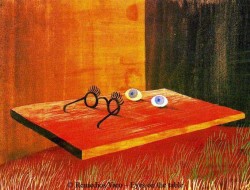
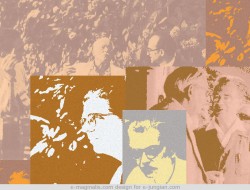
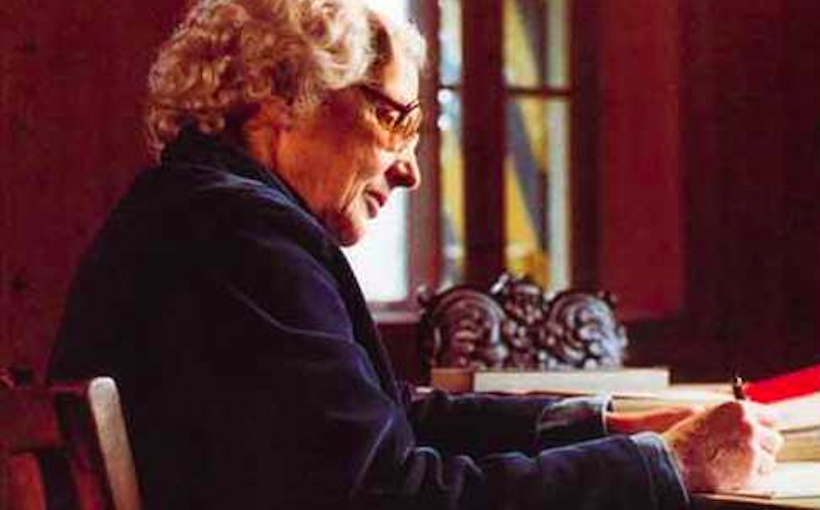
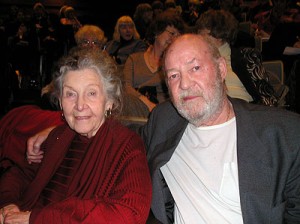
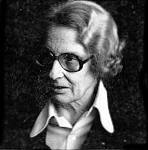
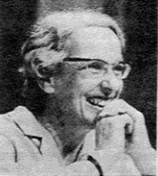
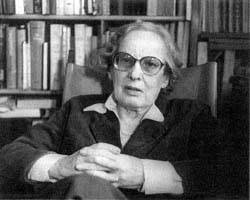











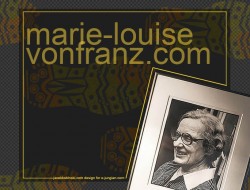
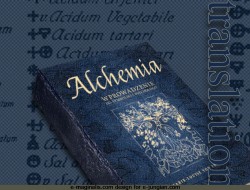
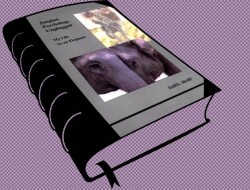










[…] Source: e-jungian.com […]